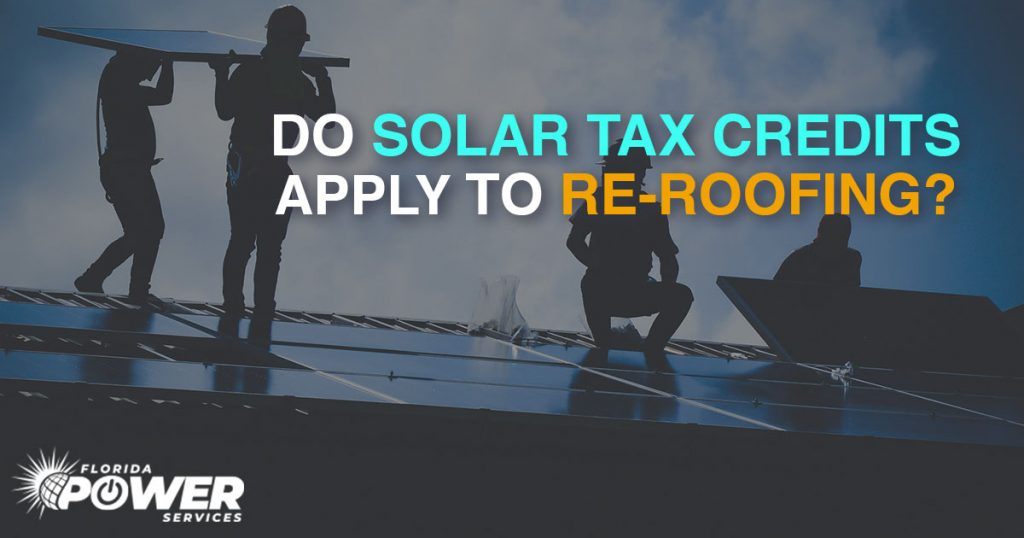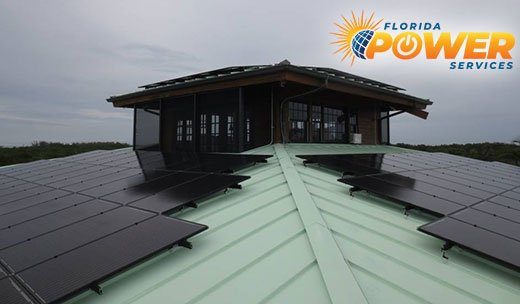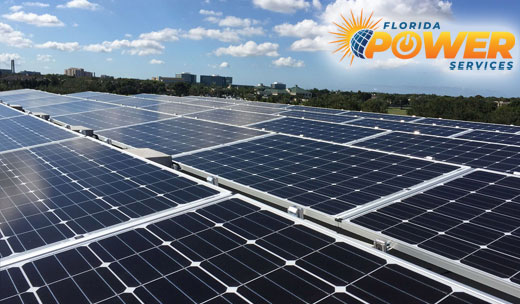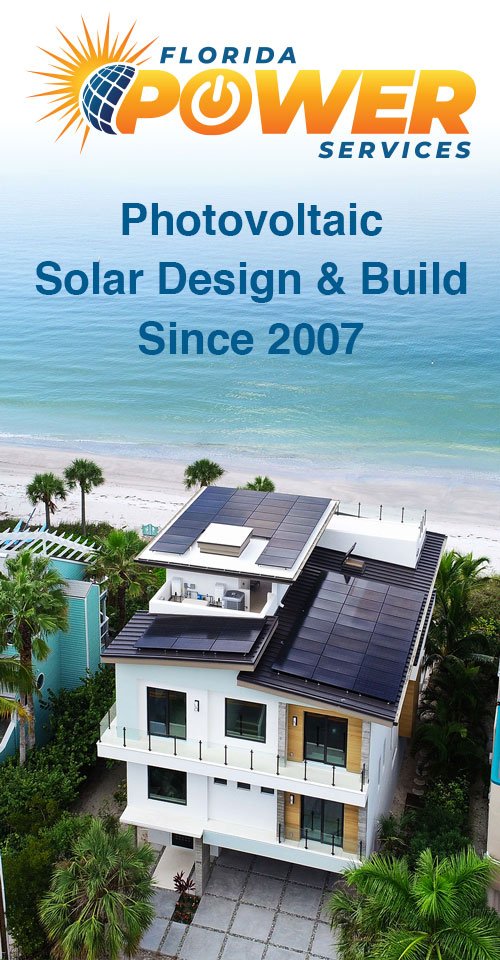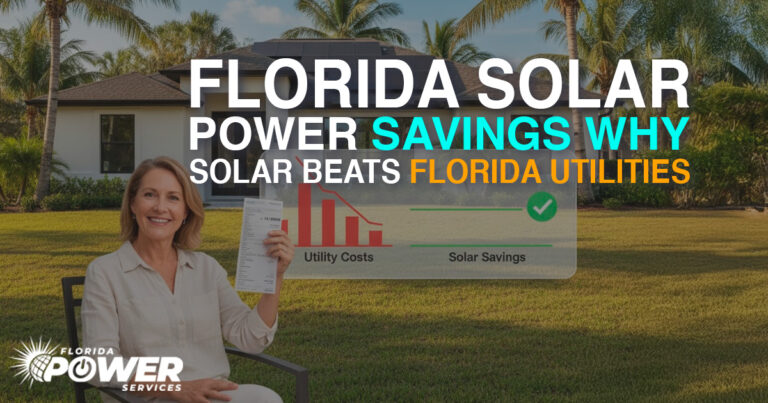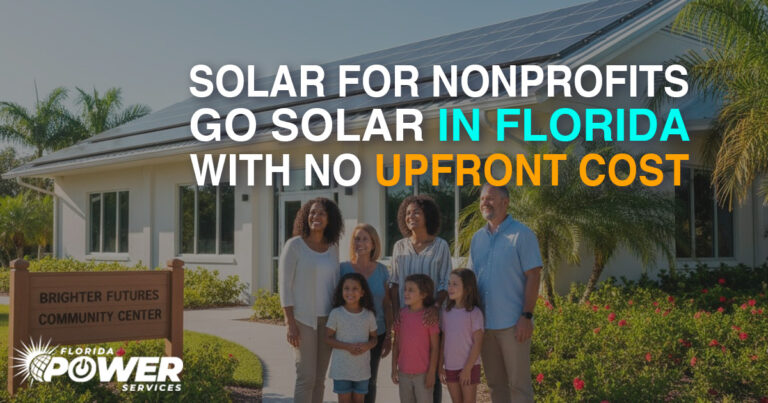When deciding to install solar panels in Florida, one of the first questions you may ask is, should I re-roof my property? Your next question may be, will
solar tax credit reductions apply?
These questions require careful consideration, but there are facts that some solar providers may hide from you. We’re here to get the facts straight regarding
solar tax credits and
re-roofing.
Tax Disclaimer
We’re not tax professionals and all information here does not and should not constitute professional tax guidance. With over 20 years of experience in the industry, we have the expertise to guide any solar project, but you should always consider advice from a professional when making tax decisions.
What Are Solar Tax Credits?
First up, let’s make it clear what
solar tax credits are.
The Federal Investment Tax Credit (a.k.a
Solar Tax Credits) is a system that allows you to deduct a percentage of your solar installation costs from your annual federal taxes – effectively reducing the bill you pay for installation.
- In 2021, the savings are 26%.
- By 2023, it will drop to 22%.
- In 2024, it will drop to 0%.
Solar tax credits cover all labor, equipment and installation costs. They can also be carried forward to the next year if you can’t take the full credit in the year of the installation.
How Much Could I Save Through Solar Tax Credits?
Let’s look at an example: If your solar installation costs $10,000, then you could receive
Solar Tax Credits of $2,600 in 2021 – reducing your costs significantly!
Does a New Roof Apply to Solar Tax Credits?
So, can you apply those reductions to a
re-roofing job in conjunction with solar panels?
The short answer: No.
Many contractors or solar installers in Florida may tell you otherwise: don’t listen to them.
The last thing you want is to end up in hot water with the IRS. And you don’t want to have to pay for roof bills when you didn’t expect it. Over the years, we’ve seen plenty of new solar installers cut corners, add additional re-roofing and trick you into thinking you’ll make savings. We’ll never do that.
Here’s what the IRS says:
IRS Form 5695 Guidance:
The IRS guidance states that tax reductions apply to qualified solar electric property costs. Which are defined as:
“Qualified solar electric property costs are costs for property that uses solar energy to generate electricity for use in your home located in the United States.
No costs relating to a solar panel or other property installed as a roof (or portion thereof) will fail to qualify solely because the property constitutes a structural component of the structure on which it is installed.
Some solar roofing tiles and solar roofing shingles serve the function of both traditional roofing and solar electric collectors and thus serve functions of both solar electric generation and structural support. These solar roofing tiles and solar roofing shingles can qualify for the credit.
This is in contrast to structural components such as a roof’s decking or rafters that serve only a roofing or structural function and thus do not qualify for the credit. The home doesn’t have to be your main home.”
What About Solar Roofs with Solar Tiles?
Some solar roofs, such as those with solar tiles, may have components applicable. However, confusion arises when it comes to the structural parts of the roof.
The IRS guidance states:
“Some solar roofing tiles and solar roofing shingles serve the function of both traditional roofing and solar electric collectors and thus serve functions of both solar electric generation and structural support.
These solar roofing tiles and solar roofing shingles can qualify for the credit. This is in contrast to structural components such as a roof’s decking or rafters that serve only a roofing or structural function and thus do not qualify for the credit.”
That last sentence seems to clarify that structural parts of the roof will not qualify for solar tax credits. So if you think you’ll make tax savings on
re-roofing, think again.
Do I Need a New Roof?
We should also take the opportunity to warn you to consider whether the cost of a solar installation is worth it for your solar vision.
Many new customers of ours report that they’ve been considering solar roofs from competitors.
However, it’s worth asking whether it makes sense financially.
Solar roofs usually require you to build an entirely new roof AND install solar panels.
If you have no desire or need for a new roof, you could end up paying for something you didn’t even have your eyes set on.
At Florida Power Services “The Solar Power Company”, we install solar panels and
solar battery banks without the need to redesign your roof.
We use long-lasting solar brackets and components that don’t damage or affect what’s underneath.
Trust the Experts, Not Someone After a Quick Sale
If someone is offering you a solar roof with the promise of solar tax credit reductions, consider their true intentions.
If someone is just out to build a new roof that you don’t need, then consider whether they have your best intentions in mind.
While it would be great to have your roof qualify for Solar tax credits, at best only limited parts will qualify.
Florida Solar Power Services can point you in the right direction for your solar tax credits, but ultimately you should always talk and liaise with your tax professional.
Why You Should Act Now!
As previously mentioned, Solar Tax Credits will continue to drop to 0% in 2024. Now is the time to get your Florida solar installation started.
The reductions have already dropped from 30% in 2019. Time moves fast.
Act now and don’t miss out on saving thousands of dollars!
Solar Panel Installation in Florida
If you’re interested in installing solar panels in Florida on your roof, then
contact us today.
Florida Power Services “The Solar Power Company” is the Sunshine’s states leading solar power installer and would love to help you save thousands of dollars in 2021.
One last reminder: Lock in pricing now! No delays, no regrets! Make the most of those solar tax credits!

